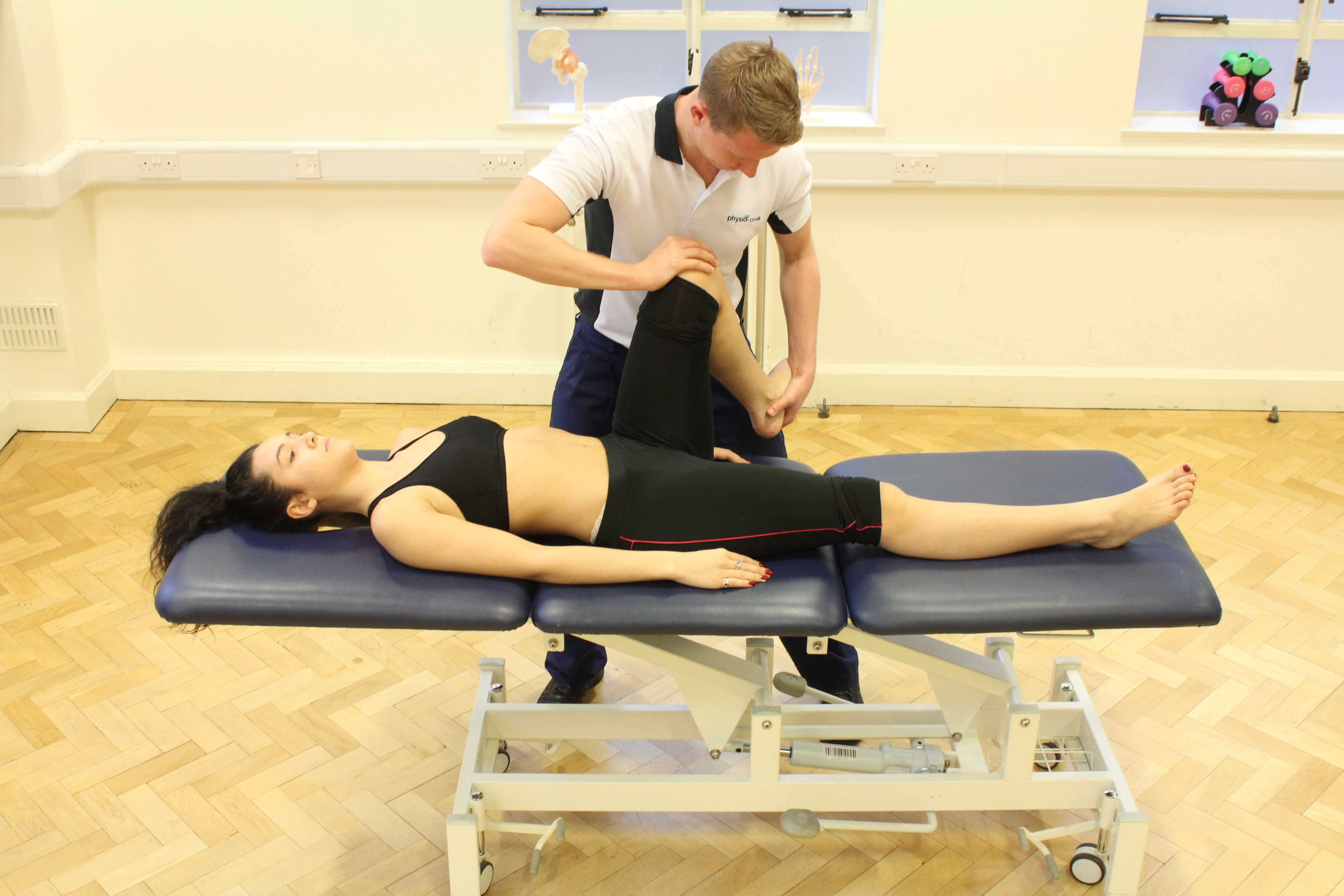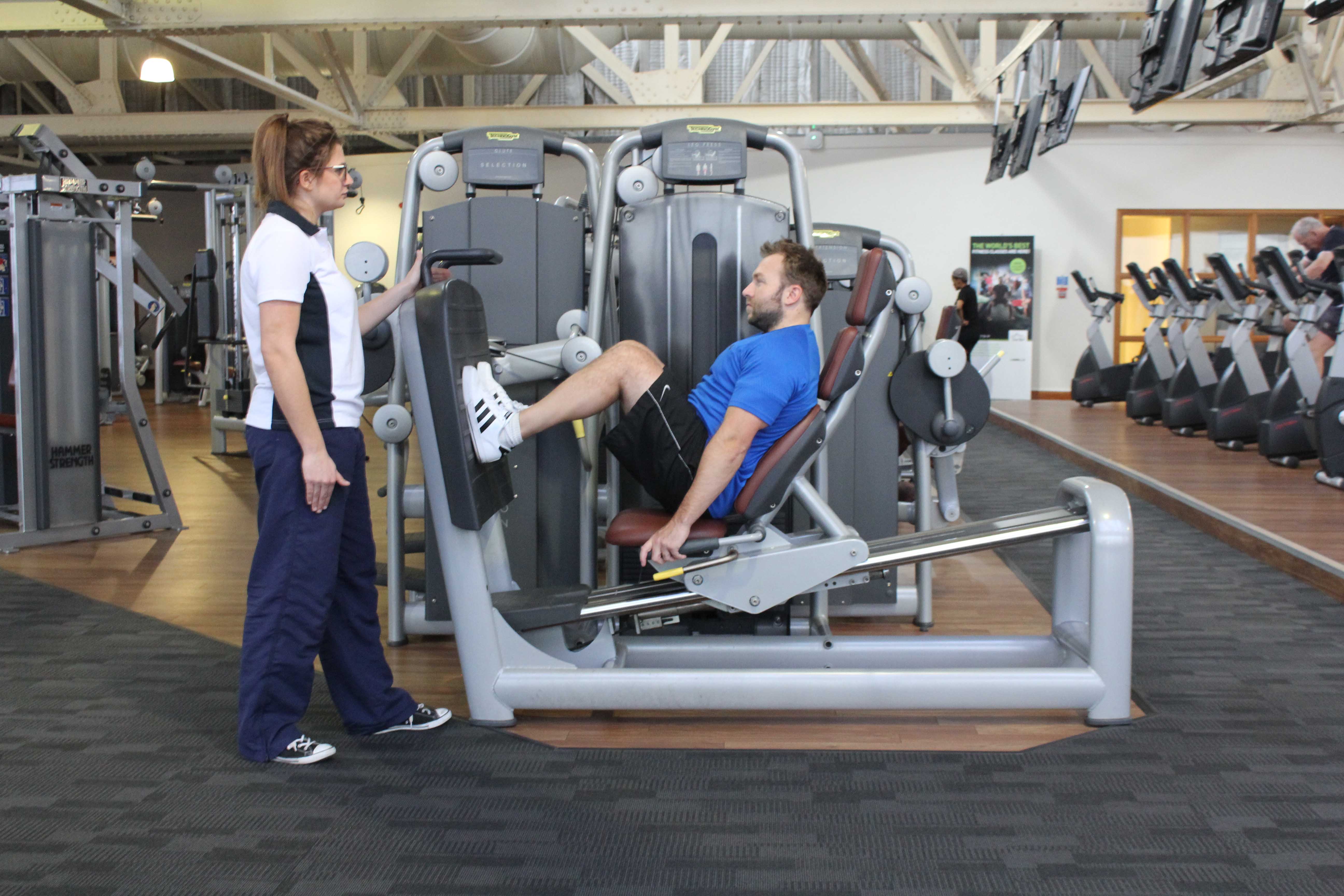What is popliteus tendinopathy?
The popliteus muscle is located at the back of the knee joint. Popliteus tendinopathy is inflammation of the tendon of the popliteus muscle. Physiotherapy is a successful treatment for popliteus tendinopathy.
How does popliteus tendinopathy happen?
The popliteus muscle has many functions. It mainly acts as a rotator of the lower leg in relation to the upper leg and as a stabiliser of the knee joint. Excessive use of the popliteus due to poor biomechanics, running surfaces or training progression can cause popliteus tendinopathy. This excessive use causes microscopic tears within the tendon. The body reacts by commencing an inflammatory response. The inflammation within the tendon is called a tendinopathy.
 Above: Therapist performing knee assessment
Above: Therapist performing knee assessmentWhat are the symptoms of popliteus tendinopathy?
Popliteus tendinopathy causes a pain in the outside of the back of the knee that develops gradually. Initially, pain may only be present after exercise. You may also experience a stiffness or tightness in the back of the knee. In the early stages of the injury these symptoms are often relieved with a hot bath or some gentle movement. However, if you continue to exercise without seeking treatment or professional advice your popliteus tendinopathy could worsen to the point where the pain and stiffness is there all of the time.
Other symptoms include:
What should I do if I have popliteus tendinopathy?
You should seek physiotherapy treatment as soon as possible if you suspect that you may have popliteus tendinopathy. If you continue to exercise and do not seek treatment it is unlikely that your injury will improve.
What shouldn’t I do if I have popliteus tendinopathy?
If you suspect you have popliteus tendinopathy, you should not ignore the problem and continue to exercise. This is likely to worsen your injury and prolong your recovery.
 Above: Progressive knee strengthening exercises supervised by therapist
Above: Progressive knee strengthening exercises supervised by therapistPhysiotherapy treatment for popliteus tendinopathy.
Physiotherapy is very important in the treatment of popliteus tendinopathy. At your initial assessment your physiotherapist will diagnose your problem and establish the severity of it. Following the assessment, your physiotherapist will be able to formulate a treatment programme specifically for you. Treatment may involve:
Could there be any long-term effects from popliteus tendinopathy?
If properly diagnosed and treated, popliteus tendinopathy does not produce any long-term effects. If not, it can potentially cause prolonged pain in the back of the knee and a lengthy lay off from sport.
To arrange a physiotherapy assessment call Physio.co.uk on 0330 088 7800 or book online.

 0330 088 7800
0330 088 7800

































